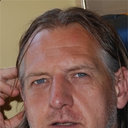Hydrocephalus associated with multiple Tarlov cysts.
Anahtar kelimeler
Öz
Tarlov cysts (TCs) consist of dilated nerve root sheaths filled with cerebrospinal fluid (CSF) and are most frequently found in the sacrum. It is estimated that 25% of detected TCs cause chronic pain and intestinal and urogenital symptoms due to compression of the sacral nerve root fibers inside the TC. Unfortunately, symptomatic TCs are frequently overlooked. It is assumed that TCs result from pathologically increased hydrostatic pressure (HP) in the dural sac that forces CSF into the nerve root sheaths. We hypothesize that in patients with TCs, increased spinal hydrostatic pressure is always associated with increased intracranial pressure. This hypothesis of increased cerebrospinal pressure might explain why patients with sacral TCs frequently report distant symptoms, such as headaches and pain in the neck and arms. In this paper, we describe a case report that provides evidence for this hypothesis. A 30-year-old man presented for the first time in our clinic complaining of lower back, leg, thoracic, neck, and arm pain; headaches; and bladder, bowel, and sphincter symptoms. He was born prematurely and suffered cerebral intraventricular bleeding followed by progressive hydrocephalus. Progression was stabilized with acetazolamide and lumbar punctures. At 19 years of age, his head circumference had further increased and he reported back pain and headaches. Fundoscopy showed no papilledema, and lumbar puncture for CSF evacuation improved the headaches and back pain. The former medical team chose not to insert a ventriculo-external shunt. Brain magnetic resonance imaging (MRI) showed significant dilation of all the ventricles. No CSF flow obstruction between the ventricles was observed. Surprisingly, MRI of the lumbar and sacral spine showed multiple large TCs. This case report indicates that hydrocephalus with a patent aqueduct may be associated with TCs because the increased intracranial pressure is transferred to the spinal canal. While increased intracranial pressure causes dilation of the ventricles, the associated increased spinal pressure may cause dilation of multiple spinal nerve root sheaths to form TCs. Furthermore, while the increased volume of the ventricles gradually compresses the neurons and axons of the brain against the bony skull, simultaneously, the increased pressure inside the nerve sheaths may also gradually compress the neurons and axons located inside the dorsal root ganglia and spinal nerves, resulting in neuropathic pain, sensory abnormalities, and neurogenic bladder and bowel symptoms. Hydrocephalus patients reporting neuropathic pain should be screened for the presence of TCs.


